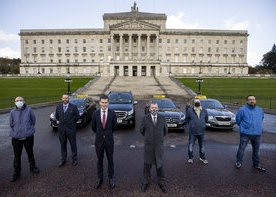
By Rebecca Black, PA
Taxi drivers have voiced hope following a “positive” meeting with Stormont’s Infrastructure Minister around support for the sector.
Public and private hire taxi drivers met with Nichola Mallon remotely on Tuesday following a campaign for specific hardship relief amid the coronavirus pandemic.
Some taxi drivers were able to be furloughed during the first wave of the pandemic as trade collapsed, but others who are self-employed said they have had no support.
The Executive will make a decision which is expected to be announced later this week.
Darragh Mackin, of Phoenix Law, said Ms Mallon confirmed measures will be put in place to ensure that taxi drivers are protected in the coming months of financial uncertainty.
“Payments will be made to ensure that the industry is protected and that the taxi industry after the pandemic can continue to function,” he said.
The breakthrough came following uncertainty over which Stormont minister could act to assist taxi drivers.
Ms Mallon has a role in regulating the sector, but insisted only Economy Minister Diane Dodds had the powers necessary to create a financial assistance scheme.
Ms Mallon then wrote to the first and deputy first ministers to ask them to designate the authority to establish a payment scheme, which was granted under the terms of the 2009 Financial Assistance Act.
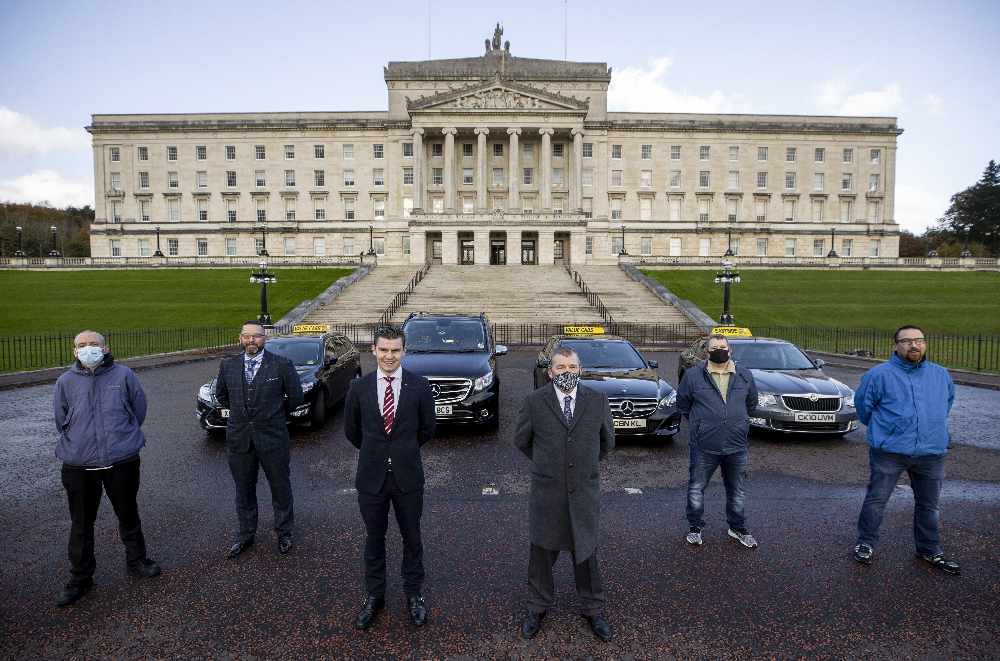
(Taxi drivers (left to right) with their solicitor Darragh Mackin (third from left), Andrew Thomlinson, Conor McGinley, solicitor Darragh Mackin, Pat Meghan, Graham Fisher, and Jonathan McKeown)
A hardship scheme for the taxi, private bus and coach sectors has since been rubber-stamped by the Executive.
Mr Mackin said while they are expecting details of support for drivers to be announced on Thursday, there has been no movement on help for taxi depots.
“It’s been a very difficult journey to get to this stage, regrettably there has been a threat of legal proceedings, there have also been numerous complexities as a result of the uncertainty over who bore the responsibility for the taxi industry,” he said.
“Whilst there has been some fraught exchanges, today was a very constructive engagement in that the news that was very much welcomed by taxi drivers that the payments will now be made, unfortunately there is an issue that continues to arise in respect of depot owners, however that is now a matter for another day.”
Jonathan McKeown, of Eastside Taxis, said he felt relieved after the meeting.
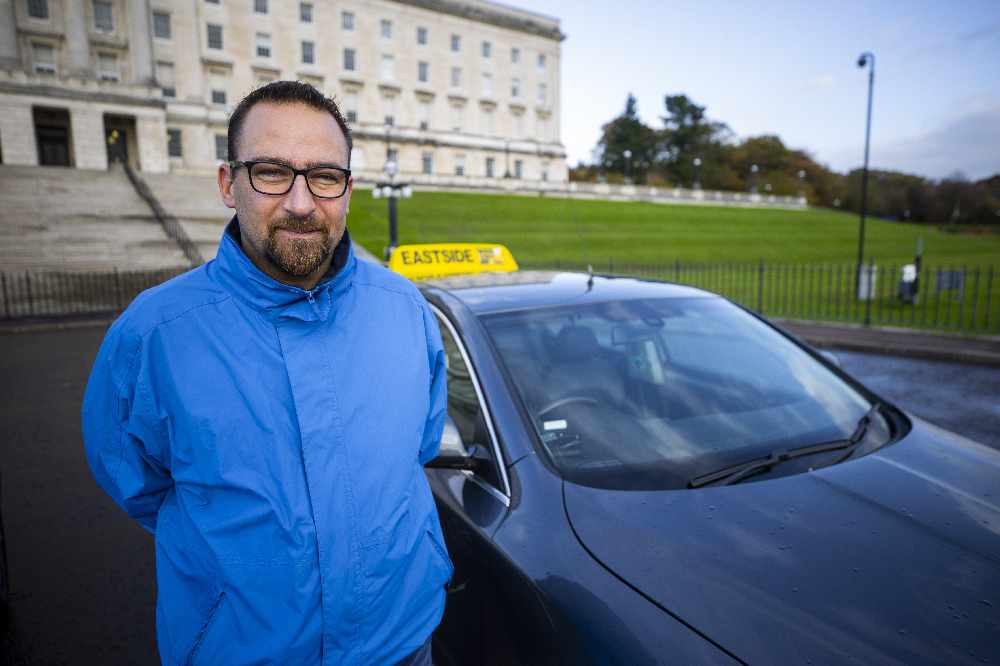
Taxi driver Jonathan McKeown at Parliament Buildings in the Stormont Estate.
“We started campaigning towards the end of March when we realised how severe the first lockdown was going to be, after seven months I think we deserve what we heard today,” he said.
“It’s been tough, you fall into debt, overheads don’t get met.
“In the first lockdown, a lot of depots did deferments on car payments which did help, but we’re into another lockdown now and things aren’t showing much sign of improvement.”
He was completely off the road from April to June and said trade remained slow even when the hospitality sector reopened in July.
Northern Ireland is currently midway through four weeks of further restrictions aimed at halting a recent dramatic increase in Covid-19 infections.
Conor McGinley, a taxi driver in Belfast, said the sector was left to fend for itself.
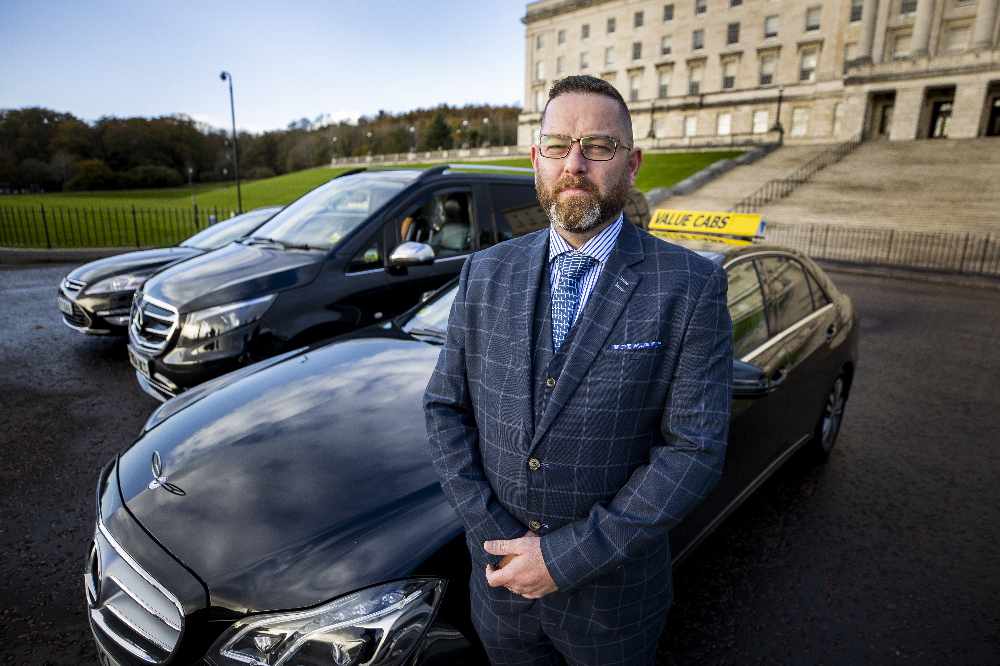
Taxi driver Conor McGinley at Parliament Buildings in the Stormont Estate.
“We still had our car payments, our insurance and that’s just to run our business. We were just left behind even though we are an essential business,” he said, pointing out the work taxis do transporting patients for appointments and health workers to work at the height of the pandemic, he added.
“I was off the road for six weeks and then I had to come back but then we would have been lifting about a third of what we would have normally been lifting.”
Mr McGinley said he knew of a taxi driver who one weekend found himself unable to feed his children.
“Thankfully we were able to sort him out but this help will be very beneficial for him,” he said.


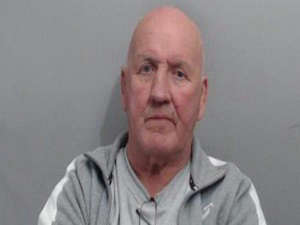 PPS to consider any basis for appeal against Oliver MacCormack sentence
PPS to consider any basis for appeal against Oliver MacCormack sentence
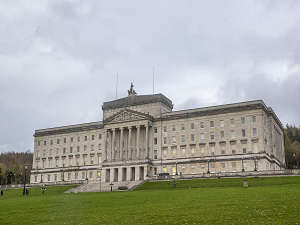 Working group to assess impact of trade tariffs on Northern Ireland businesses
Working group to assess impact of trade tariffs on Northern Ireland businesses
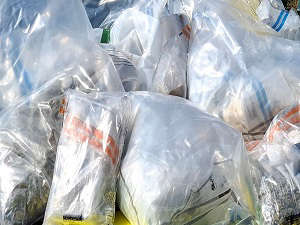 Drugs worth £860,000 seized following search in Kilkeel
Drugs worth £860,000 seized following search in Kilkeel
 Additional public transport announced ahead of Open golf event at Royal Portrush
Additional public transport announced ahead of Open golf event at Royal Portrush